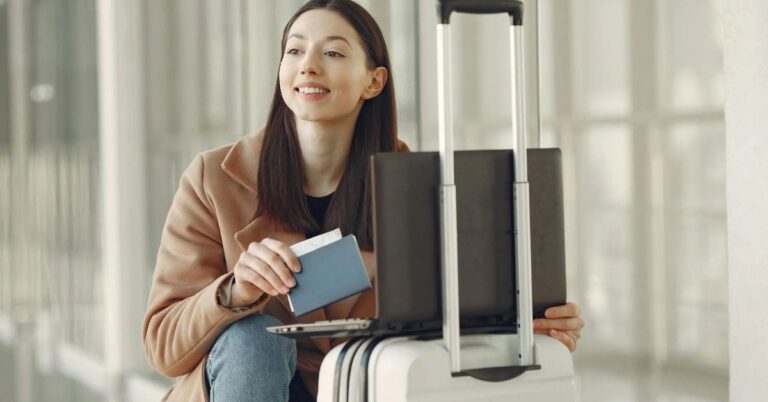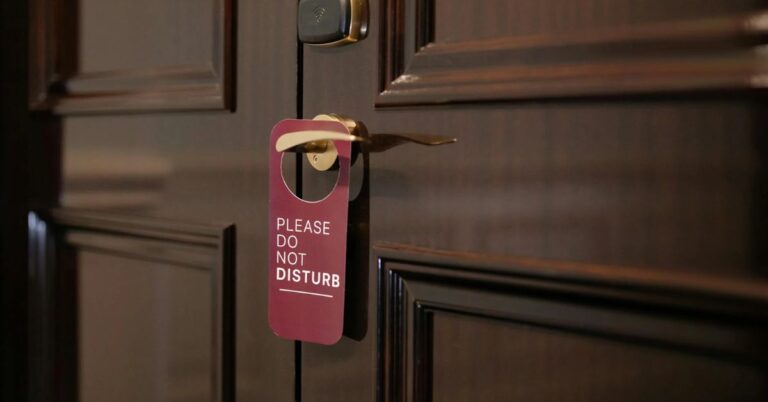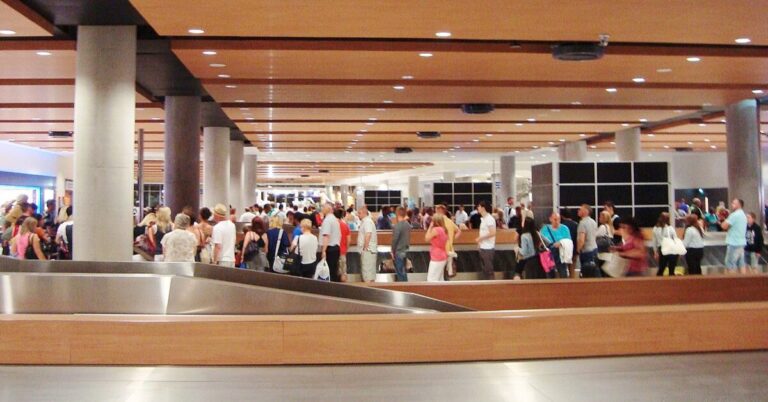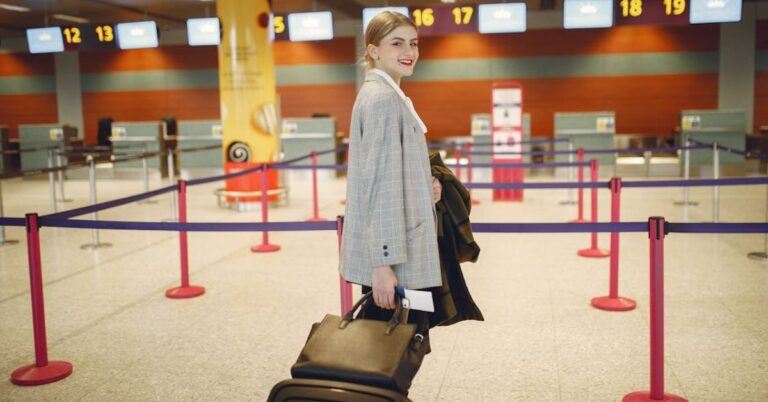15 Proven Tips To Sleep Peacefully On Your Next Flight

Catching quality sleep on a plane can feel impossible—tight seats, engine noise, and constant interruptions don’t exactly make for a peaceful nap. But don’t worry, restful sleep at 30,000 feet is possible. With the right tricks up your sleeve, you can snooze like a pro, even in an economy. Here are 15 expert-backed strategies to help you drift off mid-flight and land feeling refreshed.
Choose The Right Seat
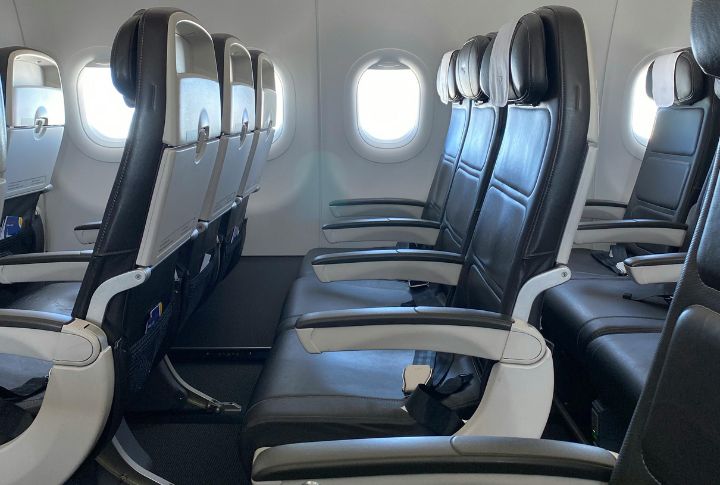
The best seat for sleeping is typically a window seat, as it provides something to lean against, helping you to feel more settled. Avoid sitting near the bathroom or galley, where foot traffic can disturb your rest. If possible, choose a seat in the plane’s midsection, as it tends to be further from engine noise.
Dress Comfortably
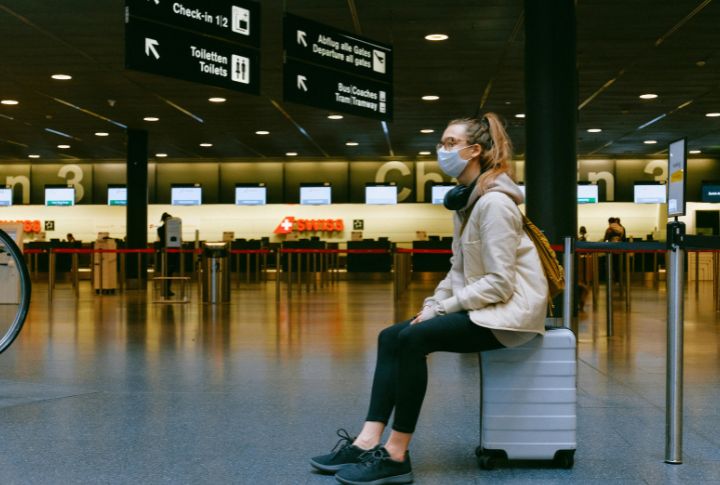
When preparing for a long flight, choose loose, comfortable clothing that won’t constrict your movement. Tight clothing around your waist or legs can hinder blood circulation and make it harder to relax. Layering is key, as temperatures on planes can fluctuate, and a light jacket or sweater can help you stay warm without feeling stuffy.
Use A Neck Pillow Or Travel Pillow
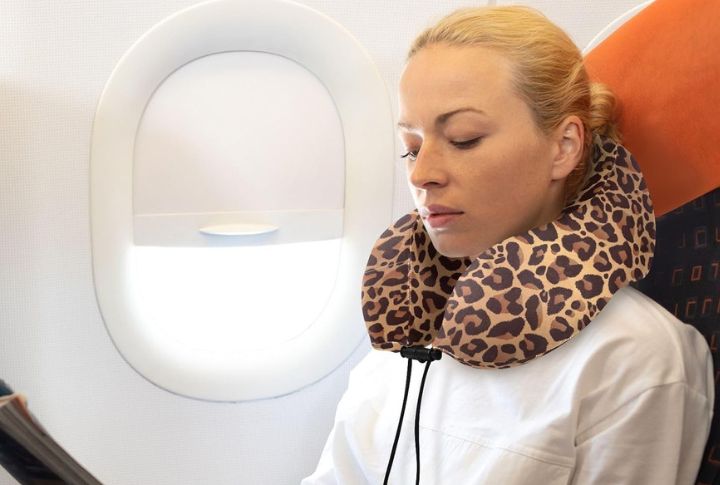
A good neck pillow supports your head and prevents your neck from straining during sleep. The memory foam versions are particularly praised for their ability to contour to your neck’s shape. Some frequent flyers recommend the U-shaped pillow for its ability to keep your head from jerking forward or sideways.
Wear A Sleep Mask
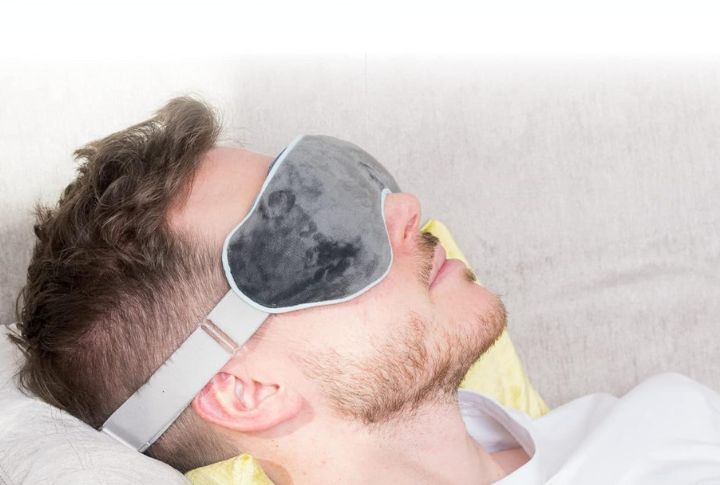
A sleep mask is one of the simplest yet most effective ways to block out light and signal to your brain that it’s time to sleep. Even during the day or in brightly lit cabins, a mask can make relaxing easier. Make sure to choose a mask that is comfortable and adjustable.
Bring Noise-Canceling Headphones Or Earplugs
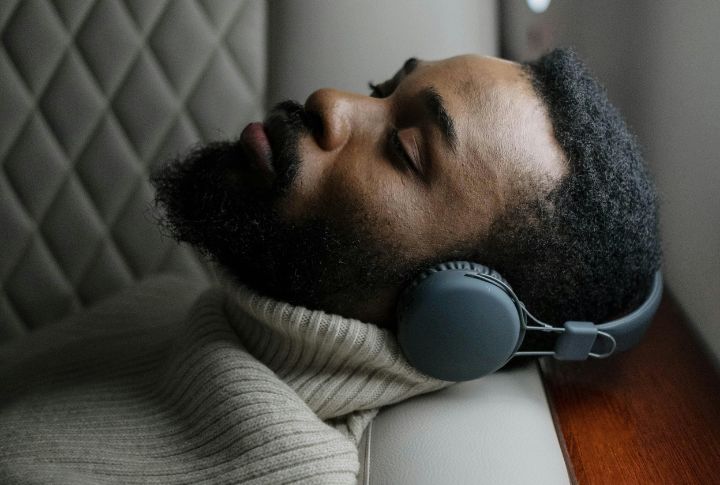
Reducing noise is necessary for a peaceful sleep on a plane. Noise-canceling headphones are highly recommended by frequent travelers because they actively block out the sound of engines, chatter, and other distractions. If headphones aren’t an option, earplugs are a more compact and affordable solution.
Stay Hydrated, But Don’t Overdo It

Staying hydrated is important for your comfort and health, but drinking too much right before or during the flight can lead to frequent bathroom trips. Sip water regularly throughout the flight to stay hydrated, but avoid excessive liquids before you sleep. Dehydration can cause tiredness and headaches, making it harder to sleep.
Utilize A Blanket Or Shawl

While planes provide blankets, they are often thin and not very warm, so consider bringing your own for added comfort. A cozy travel blanket or shawl can provide the extra warmth you need to feel comfortable enough to sleep. Regular travelers recommend packing a lightweight, compact blanket that can easily fit in your carry-on.
Adjust Your Sleep Schedule Before The Flight

A smart way to fight jet lag is by tweaking your sleep schedule a few days before your trip. This helps your body adjust and makes it easier to fall asleep when you arrive. If you’re crossing time zones, shift your bedtime an hour or two closer to your destination’s time each night.
Recline Your Seat
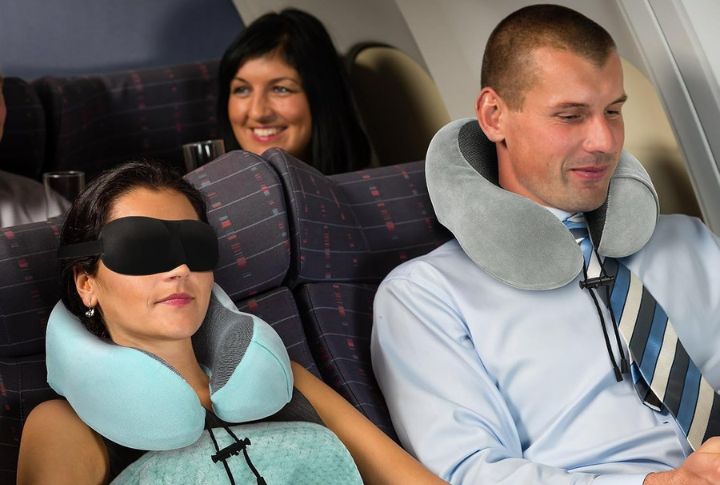
Reclining your seat, even slightly, helps to relieve pressure on your back and allows for a more comfortable sleeping position. Most modern planes have seats that recline to varying degrees, and experts advise reclining as much as possible without disturbing others. Use a footrest to raise your feet and relieve pressure from your lower back.
Limit Screen Time Before Sleeping

Phones and laptops release blue light that can alter melatonin levels, the hormone that regulates sleep. To give your body a better chance at winding down, avoid screens for at least 30 minutes before trying to sleep. Try listening to soothing music or doing a bit of light relaxation instead.
Meditation Or Breathing Techniques

Experienced travelers often swear by meditation or breathing exercises to quiet their minds before sleep. By practicing techniques like deep breathing or progressive muscle relaxation, you can ease anxiety and fall asleep more easily. One popular method is the 4-4-4 technique: inhale slowly for four counts, hold for four, and exhale for another four.
Eat Light Before The Flight

Eating a heavy meal before a flight can leave you feeling bloated and restless. Instead, go for something light and easy to digest to keep discomfort at bay. Foods rich in protein or complex carbs can actually help you sleep by keeping your blood sugar steady. Just steer clear of anything too spicy or greasy—they’re common culprits behind mid-flight heartburn.
Use Aromatherapy

Many travelers recommend bringing a small vial of essential oil or an aromatherapy roller to use before sleep. Dabbing a calming scent on your wrist or pillow can ease anxiety and help you unwind, making it easier to doze off. Plus, aromatherapy can freshen the air around you—especially useful if the cabin has an unpleasant smell.
Avoid Looking At The Clock
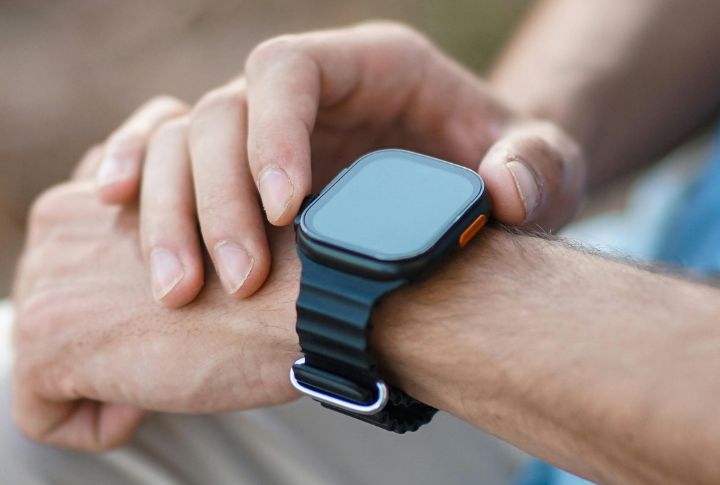
Constantly checking the time can increase stress and anxiety, which in turn makes it harder to fall asleep. It is best to avoid looking at the clock or focusing on the length of your flight. Instead, let go of expectations and try to relax your mind, knowing that sleep will come at any time.
Practice Patience
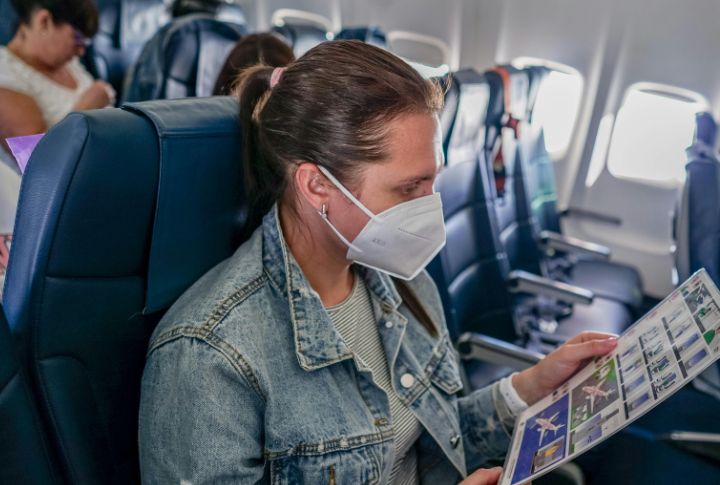
Sometimes, sleep doesn’t come as easily on a plane, so be patient with yourself. Relax your mind rather than forcing sleep, as the pressure to sleep can make it more difficult. Adjusting your mindset to accept that you may not sleep perfectly can help reduce stress. The more you let go, the easier it becomes to rest.



